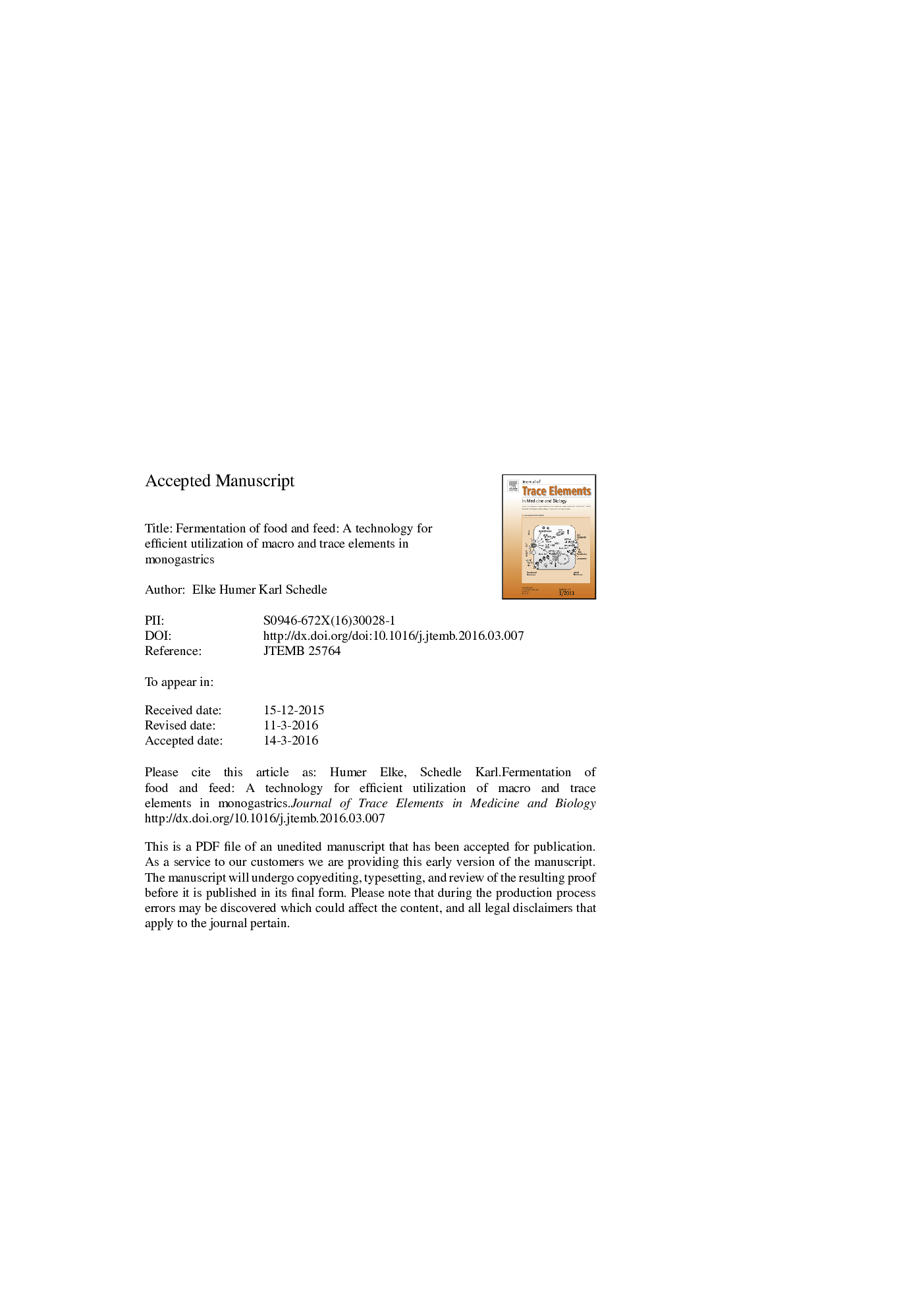| Article ID | Journal | Published Year | Pages | File Type |
|---|---|---|---|---|
| 7639083 | Journal of Trace Elements in Medicine and Biology | 2016 | 41 Pages |
Abstract
Mineral deficiencies, especially of iron, zinc, and calcium, respectively, negatively affect human health and may lead to conditions such as iron deficiency anemia, rickets, osteoporosis, and diseases of the immune system. Cereal grains and legumes are of global importance in nutrition of monogastrics (humans and the respective domestic animals) and provide high amounts of several minerals, e.g., iron, zinc, and calcium. Nevertheless, their bioavailability is low. Plants contain phytates, the salts of phytic acid, chemically known as inositol-hexakisphosphate, which interact with several minerals and proteins. However, phytate may be hydrolysed by phytase. This enzyme is naturally present in plants and also widely distributed in microorganisms. Several food processing methods have been reported to enhance phytate hydrolysis, due to the activation of endogenous phytase activity or via the enzyme produced by microbes. In recent years, fermentation for food and feed improvement and preservation, respectively, has gained increasing interest as a promising method to degrade phytate and enhance mineral utilization in monogastrics. Indeed, several in vitro as well as in vivo studies confirm a positive effect on the utilization of minerals, such as P, Ca, Fe and Zn, using sourdough fermentation for baking or fermentation of legumes, mainly soybeans. This review summarizes the current knowledge regarding the potential of fermentation to enhance macro and trace element bioavailability in monogastric species.
Related Topics
Physical Sciences and Engineering
Chemistry
Analytical Chemistry
Authors
Elke Humer, Karl Schedle,
